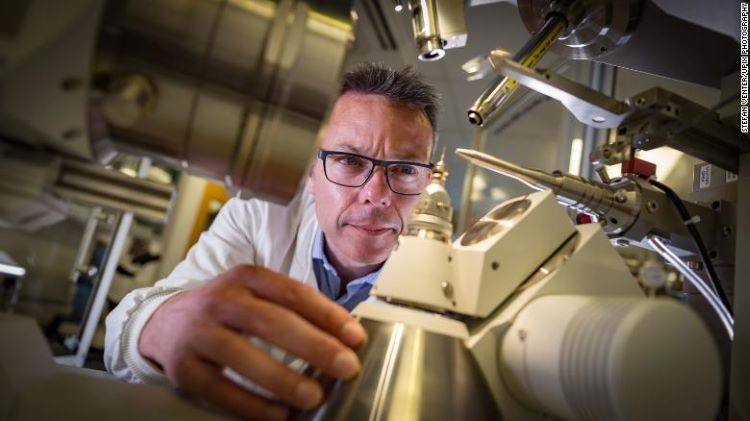 The new super enzyme can ‘eat’ plastic 6 times faster. Photo: CNN
The new super enzyme can ‘eat’ plastic 6 times faster. Photo: CNN
CNN channel (USA) cites a press release from the University of Portsmouth (UK) said a group of researchers have re-engineered a former plastic-degrading enzyme, PETase, linking it to an enzyme second to accelerate plastic decomposition. The full study was published on August 29 in the American journal Proceedings of the National Academy of Sciences.
Super enzymes can be important in the recycling of polyethylene terephthalate (PET), the most common thermoplastic, commonly used to make beverage bottles, carpets and disposable clothing. However, it takes PET hundreds of years to decompose in the natural environment. Meanwhile, PETase can degrade PET plastic in just a few days.
John McGeehan, head of research and director of the Enzyme Innovation Center at the University of Portsmouth, said this new development represents a huge step forward in using enzymes to recycle and reduce plastic pollution. .
“We were quite surprised that it worked so well, although we haven’t been able to speed up the commercialization yet,” said McGeehan, who said the study has received funding to conduct further experiments. . “The successful development means that PET can be recycled instead of using fossil fuels to create new plastic,” he added.
The new super enzyme combines both PETase and MHETase. This mixture breaks down PET twice as fast as PETase. Meanwhile, the combination of these two enzymes showed that the decomposition rate increased by 3 times.
Mr. McGeehan used a device called Diamond Light Source, a device that uses X-rays 10 billion times the sun’s light to be able to observe individual atoms, to map MHETase’s molecular structure. From there, the researchers were able to create a new super enzyme by combining MHETase and PETase, linking the DNA enzymes together to create a long chain.
The technique, commonly used in the biofuel industry, uses enzymes to break down cellulases, but McGeehan said this is the first time he has discovered linked enzymes that break down plastic.
Plastic pollution is one of the most pressing environmental problems today. A recent report from The Pew Charity Trusts predicts that the amount of plastic thrown into the ocean could nearly triple to 29 million tons a year by 2040 – the equivalent of 50 kilograms per meter of coastline on the planet. plastic.
 The enzymes MHETase and PETase (red and blue, respectively) link together. Photo: CNN
The enzymes MHETase and PETase (red and blue, respectively) link together. Photo: CNN
“There is no single solution,” the report says, but “an ambitious recycling strategy” could reduce plastic pollution by 31-45 percent.
In April, the French company Carbios also published a study on the enzyme that breaks down PET. The company’s press release says the research will be tested at a factory near the city of Lyon in 2021.
Researchers have found a bug that can break down plastic, even polyethylene – a common and non-biodegradable plastic that is stagnant in landfills and on coastlines – thanks to bacteria its intestinal tract.
Powders, the larvae of the beetle, also contribute to the breakdown of plastic. About 3,000 to 4,000 powder worms can break a plastic coffee cup in about a week thanks to bacteria that live in the gut.
